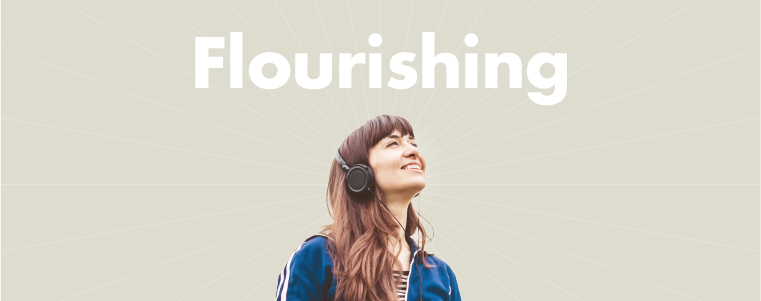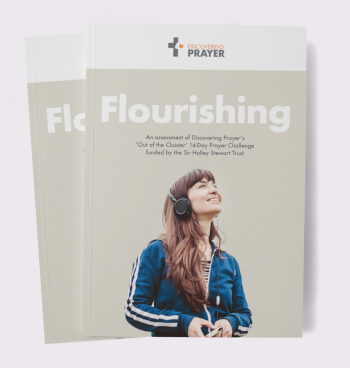
11 ways you can learn how to pray from nuns and monks
Do you try to get prayer ‘right’ but often feel like you’re failing? Ever wish you could get help from an expert, just like you would if your car started playing up?
Nuns and monks spend years learning to weave a rhythm of prayer into daily life. Over that time, they gain some amazing insights into everything from dealing with discouragement to recognising God’s voice and finding peace in his presence. Once you’d have needed to make a special journey to a monastery to benefit from this wisdom. But now technology means the voices of nuns and monks can be heard far outside the cloister by so many more of us.
‘The world of men and women has forgotten the joys of silence, the peace of solitude, which is necessary, to some extent, for the fullness of human living. You cannot be happy for long unless you are in contact with the springs of spiritual life which are hidden in the depths of your own soul.’
– Thomas Merton (Trappist monk at the Abbey of Our Lady of Gethsemani)
We wanted to capture wisdom like this from nuns and monks across a number of different Christian denominations. So we created the 14-Day Prayer Challenge, a unique course designed to help people learn directly from nuns and monks and then put that learning into practice through a daily guided prayer time. Right at the start, we invited the Discovering Prayer online community to tell us the questions you’d like to put to nuns and monks. Then I went to see them, asking their advice on areas like:
- How should I deal with distractions?
- How can I pray when I’m exhausted and can’t think?
- Does prayer ever feel like you're talking to yourself, that no one's listening?
Their answers might surprise you.
One of the most powerful takeaways was the nuns and monks’ openness about their struggles with difficulties like low mood, feeling far from God or finding it hard to focus. Another was their view of prayer as a lifelong journey of learning rather than a practice to perfect.
Learning is at the heart of everything we do at Discovering Prayer. We want to learn together in an active, joyful discovery of the treasure God has for us as a community in prayer. As an organisation, we’re always looking for the best, most evidence-based ways to help you flourish in your walk with God. We’re also keen to develop best practice in researching what we do and teaching those in the church who want to learn more about fostering prayer in their communities.
In this article you can discover what we learned from the experts through the 14-Day Prayer Challenge in these four areas:
(Related: Download the full report on the 14-Day Prayer Challenge)
What do nuns and monks say about prayer?
First up, we asked what questions you’d like to put to the experts – nuns and monks from Anglican, Methodist, Orthodox and Catholic traditions. The response was revealing. It’s clear many of you want to go deeper in prayer, but have a tough time grappling with challenges like:
- How to stay focused in prayer
- What to do when God seems far away or even absent
- How to keep going with prayer when you feel unworthy of God’s love.
When I went to interview the nuns and monks I was moved by their honest and compassionate understanding of these difficulties. Over the years, they had enjoyed profound experiences of God’s presence. But they were also familiar with long, dry seasons of discouragement. Their acceptance of this and practical suggestions for finding a way through were life-giving. One Challenge participant described the ‘great liberating sense of permission to struggle’ this gave her.
So what did the nuns and monks say about prayer? Here are four insights:
- It’s OK to feel weak. The nuns and monks were open about their own experience of low mood, frustration or pain. Brother Ian from Mucknell Abbey, UK reminded listeners that this is part of the human condition, and that prayers that include all the emotions of life are valid, as we hear in the Psalms.
- Set an intention rather than expectation. Feeling disappointed that you’re not having the experience you expected may blind you to the blessings God has for you. Brother John from Turvey Abbey, UK encouraged listeners to stop asking ‘What’s in it for me?’ and instead to be quiet, patient and intent on God. As 100-year-old Brother Herbert said, ‘You have to be at it for a long time, and then it works.’
- Be honest with God if you’re feeling unworthy of his love. Sister Stella from the Community of St Mary the Virgin in Wantage, UK recommended sharing any sense of unworthiness with Jesus, rather than withdrawing from him. She explained how, when Jesus told his disciples, ‘I am the vine; you are the branches,’ he was saying, ‘You’re part of me’. It’s good to remember that it’s not we who bear fruit but God who does it through us, because he lives in us.
- Remember that God is eternally present. Brother Ian encouraged listeners not to feel under pressure to work hard to find God, but instead to simply accept that God is already present and in relationship. That way, we have permission to stop striving and worrying about praying in the ‘wrong’ way. Instead, we can ‘just be’ with God, and find joy and release in this freedom.
(Related: Listening to God and Stilling Our Wandering Mind)
What tips did people take away from the 14-Day Prayer Challenge?
Over the course of the Challenge, nuns and monks shared a number of tips which are easy to remember and simple to put into practice. They may even be transformational, like they were for one participant, Caroline, who wrote to say:
‘I’m so happy participating in the 14-Day Prayer Challenge – it is just what I needed having felt “lost” and rudderless and going through big changes in my life. Learning about how to get closer to God by using prayer as a channel for deeper connection and exploring new ways of praying is a priceless gift.’
Here are seven tips for you to try:
- Start the day with a simple prayer before all the other calls on your time and attention flood in. Brother Christopher from New Skete Monastery in New York, US suggested, ‘Lord, I offer you this day. Help me to give my best to you today.’
- Quietly name a person on your heart before God. Sometimes it’s good to let go of the urge to include lots of detail when you pray. Sister Stella recommended simply sitting with God and lifting a person’s name to him.
- Try the Jesus prayer. This is the Orthodox practice of silently repeating a phrase such as ‘Lord Jesus Christ, Son of God, have mercy on me, a sinner.’
- Find a practical way to minimise distractions. Brother John shared how a journey in a car can be like withdrawing to a monk’s cell – an opportunity to silence distractions and focus on God.
- Journal. If your mind is racing and you’re struggling to pray, try writing your thoughts down for 10 minutes, Brother Christopher suggested. You may find it easier to enter a place of quiet after capturing, acknowledging and releasing your thoughts in this way.
- Consider using a holding cross. In one particularly difficult season, Brother Ian found it hard to focus on prayer or even to sit still. So he picked up a small holding cross he’d been given and simply held it. Resting with God and holding on to the cross became his prayer, and the experience was powerful.
- End your day with examen. Sister Mary from the Community of St John Baptist, UK recommended asking God to show you what was most life-giving in your day, and taking a moment to reflect on it, to relive it and to give thanks.
(Related: 7 Ways to Learn to Pray Without Ceasing)
Three ways a prayer course can improve your wellbeing and relationship with God
My inbox is testament to the difference taking part in a prayer course can make to your wellbeing and relationship with God. So many of you write to tell me that praying with Discovering Prayer has helped you to focus better, or be more present for your family, or find peace even when life is hard.
Research carried out during the 14-Day Prayer Challenge indicates that a prayer course can make a difference to your life in these three ways:
a) Greater personal flourishing – people who took part in the Challenge and gave feedback reported improvements in:
- how satisfied they felt with life as a whole
- how they rated their physical health
- the extent to which they felt the things they do in life are worthwhile
- their choice to act to promote good in all circumstances, even in difficult and challenging situations.
b) Deeper communion with God – people said the course helped them feel closer to God and more secure in their relationship with him, and that it improved:
- their understanding of who God is
- the way they intentionally seek God’s presence in their daily life
- their satisfaction with their prayer life.
The reminder that God is eternally present and that there’s no ‘right’ or ‘wrong’ way to pray also released some into a much greater sense of security and comfort with God.
c) Improved wellbeing in other areas of life. New ways of accepting themselves and feeling content with the uncertainty of life helped respondents find fresh patience and presence for those around them. People shared that the gentle approach of the nuns and monks helped them feel a greater sense of peace. This in turn translated into improved relations with family and friends.
One Challenge participant, Barbara, wrote:
‘Each day, I feel as though I am entering into a holy place, like a chapel where the door has been purposefully left open, for me to enter in. It feels wonderfully personal (just for me) but also like his big open arms welcoming me into a beautiful sense of the community of God. It feels heaven-sent and connecting with such precious, deep roots of faith is just what I have needed. I have tears in my eyes as I write, as only Jesus knows how very much I have needed this.’
What form did the research take?
Discovering Prayer was able to make these discoveries thanks to funding from the Sir Halley Stewart Trust.
The aim was to search out world-class researchers and ask for advice on how to measure the impact of taking part in an online prayer course. It's been a blessing to work with Matthew T. Lee, Director of Empirical Research at the Human Flourishing Program at Harvard University. He suggested using three methods to measure changes in Challenge participants’ wellbeing and relationship with God:
- surveys: people were asked to complete a survey before the Challenge started, at the mid-point, and then after the end of the course
- feedback: participants were invited to send feedback by email
- a series of 1:1, hour-long Zoom interviews with seven participants to find out more about their experience of the prayer course and the difference it made.
After evaluating this quantitative data and qualitative feedback, Matthew T. Lee found the 14-Day Prayer Challenge to be ‘quite meaningful, even transformative’ and ‘remarkably effective’ for participants who gave feedback through one or more of these channels.
Four recommendations for evaluating a course like the 14-Day Prayer Challenge
Alongside some very encouraging feedback from people who took part, this special 14-Day Prayer Challenge report shares four recommendations for organisations looking to effectively evaluate a project like this:
- Adopt an experimental design with random assignment to ‘treatment’ and ‘control’ groups.
- Incentivise a response. It’s vital to make sure a statistically significant number of people go on to fill in all three surveys. You can do this by raising funds to provide a small financial incentive for participation.
- Design your survey series so you can track individual people’s responses across them. It’s possible to do this while preserving people’s anonymity by assigning each survey respondent a unique ID code or using a platform that permits linking surveys over time.
- Select interviewees randomly, rather than from a group of people who are particularly engaged.
As you'll see, the views and data captured through the surveys, feedback and interviews were wonderfully helpful in demonstrating what a difference the series made to individuals. But close examination showed that the way this research was designed and implemented needed to be more rigorous to allow a truly scientific assessment of the Challenge's impact on people’s personal flourishing or wellbeing.
Do take a look. You’re warmly invited to download the full report on the 14-Day Prayer Challenge and share it with those you think would find these insights helpful.
After all, being willing to take risks, make mistakes and continually learn not only underpins all Discovering Prayer does but is foundational to a joyful discovery of prayer for life!
Points to take away
Nuns and monks have so much to teach us about prayer – but maybe not in the way you might expect.
- Prayer isn’t a practice to perfect but a lifelong journey of learning. In the 14-Day Prayer Challenge, nuns and monks were open about sharing their struggles with issues like low mood or discouragement. Even the ‘experts’ don’t have it all wrapped up. But their encouragement is to be honest with God about how you’re feeling, to bear in mind that there's no 'right' or 'wrong' way of praying, and to remember that he is eternally present with you.
- Finding a simple, practical way to focus your thoughts on God can really help minimise distractions. Four ideas for this include trying the Jesus prayer, capturing your thoughts in a journal, using a holding cross and preparing for sleep by reviewing and reliving what was most life-giving that day.
- Discovering Prayer’s research indicates that taking part in a prayer course can help you to i) experience greater personal flourishing, ii) feel closer to God and more secure in your relationship with him and iii) see improvements in other areas of your life, such as your relationships with those close to you.





